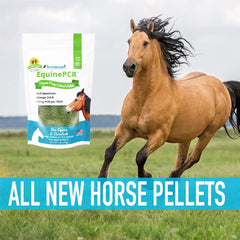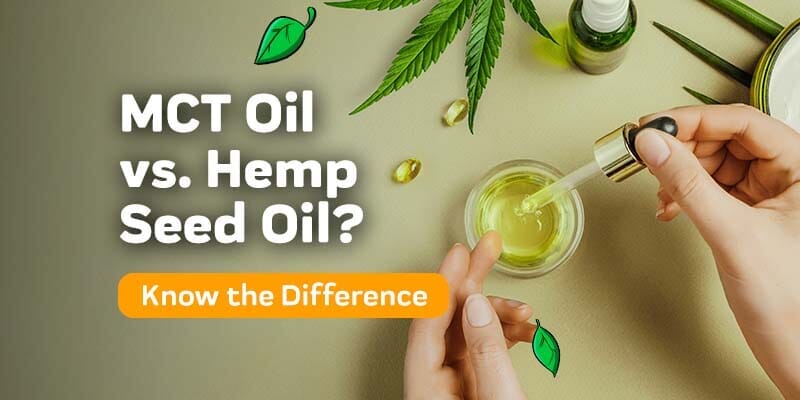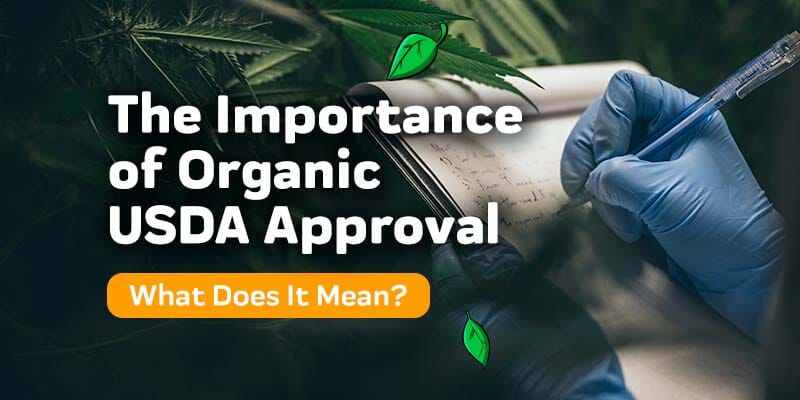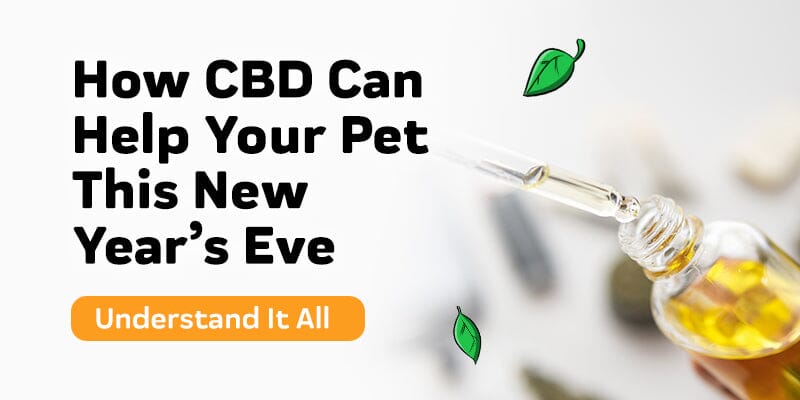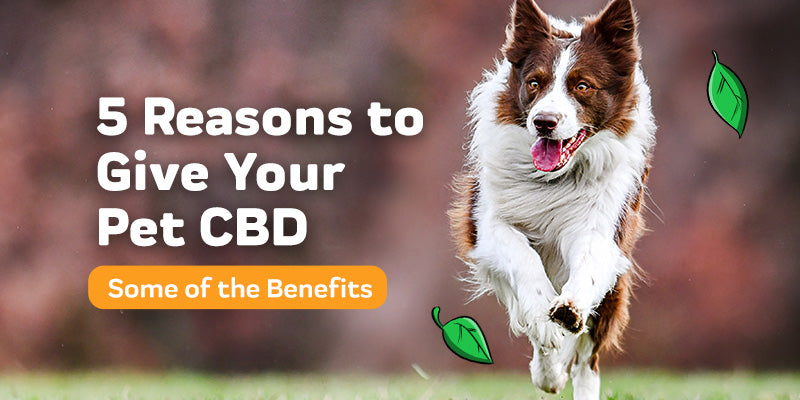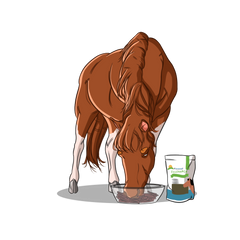
Horses are complex, but majestic and beautiful creatures. Just like with any other pet, a responsible owner ensures the health of their pets.
While horses are much more complex than the average household pet, the same rules apply, and we’ll be discussing a few handy tips on how to maintain proper equine health.
TABLE OF CONTENTS
1. 1. Annual Physical Exam
2. 2. Minimize Stress
3. 3. Vaccinate Your Horse Annually
4. 4. Proper Healthy Diet
5. CBD Oil and EquinePCR Hemp Pellets for Happy Horse Health
6. 5. Maintain Good Dental Health
7. 6. Keep Your Horse’s Hooves Healthy
8. 7. Let Your Horse Get Daily Exercise
9. 8. Deworm Regularly
10. 9. Maintain An Optimum Weight For Your Horse
11. 10. Give Your Horse Some TLC!
12. The Bottom Line
Our pets deserve only the best, and we highly advise that you work together with your veterinarian to provide the best care for your horse.
Annual Physical Exam
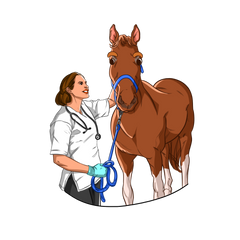 The annual physical exam helps your veterinarian to determine your horse’s health on a year-around basis, and allows for a basis to compare any changes in health over a period of time.It’s essential that your horse undergoes a routine annual physical exam, where your veterinarian will perform a thorough visual inspection of your horse.
The annual physical exam helps your veterinarian to determine your horse’s health on a year-around basis, and allows for a basis to compare any changes in health over a period of time.It’s essential that your horse undergoes a routine annual physical exam, where your veterinarian will perform a thorough visual inspection of your horse.
No one likes going to the doctor, but an annual physical examination play an important role and component in achieving wellness - especially in your horse.
After all, our horses and pets can’t really communicate verbally, so it’s up to us to be responsible pet owners and to ensure the status of their health with your veterinarian.
Commonly, an annual physical exam is a thorough evaluation of the overall health and condition of your horse, which may include body weight, dental evaluation, ocular (eye) health, heart health, hoof care, lungs and gut, as well as sheath and genitalia health.
The annual physical exam may also evaluate the temperature and heart and respiratory rate.
A routine annual physical exam can help you catch and address subtle symptoms of a much more serious health condition before it progresses further and becomes problematic.
Minimize Stress
Too much stress on a horse can cause diarrhea, bad behaviors, ulcers, depression, or even damage to the immune system.
Just like in humans, stress can take a toll on our health, and for horses, it’s important that stress is kept to a minimum. Here are a few pointers to help keep your horse relaxed and happy
Social Life
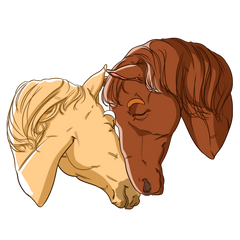
By nature, horses are naturally herd animals and enjoy the company of other horses. In some cases, horse owners may not afford more than one horse, but there are a few options you can pursue to help lessen your horse’s loneliness.
Lack of social life for a lone horse can lead to many conditions further down the line, and one of the most prevalent conditions is known as depression.
Just like in humans, dogs, and even cats, horses can experience depression as well. Here are a few tips on how you can help.
Provide a Companion Animal
In this case, some horse owners board another friend’s horse on their property so that both horses can have a companion.
Horses don’t necessarily need another horse companion, but they definitely do a lot better in a herd. Owning one horse can be costly, and it’s understandable that a horse owner may not be able to afford another horse, yet alone the expenses that come with maintaining the health of another equine.
In some cases where a horse may need to be housed alone or you do not have the option to board another horse, it is still possible to provide a companion animal for your horse.
Goats are amongst one of the most popular companion animals for lone horses. Some horse owners also use cats, sheep, pigs, and even miniature horses to provide a companion for their horse.
It is important to note that if you provide a non-equine companion for your horse, you will have to consider his or her individual personality.
Some horses do not like having non-equine companions, and in some cases, will not get along well with non-equine companions or even become more stressed - some horses naturally just like to be left alone to graze in their own habitat, and it’s important you take note of this and discuss with your veterinarian.
Vaccinate Your Horse Annually
Horse vaccinations don’t offer 100% protection from diseases and eliminate them, but they definitely can reduce the possibility of contracting dangerous diseases. A common myth amongst most pet owners goes, “My pet doesn’t go anywhere and doesn’t come in contact with other animals, so I don’t need to get them vaccinated” is a false belief.
There are many contagious diseases that are airborne or transmitted with indirect contact, and whether or not your horse comes in contact with other animals is not a basis to conclude whether or not you’ll need to get them vaccinated.
There are many vaccinations required for horses, but these are the most common:
- Equine Encephalomyelitis - a mosquito-transmitted disease that can result in severe neurological damage
- Influenza or Rhinopneumonitis - a contagious flu that results in dry cough, fever, lethargy, and nasal discharge
- Tetanus - is a disease that causes difficulty in eating and swallowing, lockjaw, and rigid muscles
- West Nile Virus - or WNV, is also a mosquito-transmitted disease which results in a range of symptoms including flu, weakness or paralysis of hind limbs, convulsions (seizures), aimless wandering, impaired vision, ataxia, and head pressing
Although some horse owners vaccinate their own horses, it’s still best to consult your veterinarian to assure your horse gets the proper scheduled vaccinations.
Proper Healthy Diet
Proper nutrition plays a key role in overall wellness, and that includes providing your horse with a healthy, high-quality, and well-fed diet. Naturally, horses need roughage, and that includes hay or pasture - and lots of it.
Horses can graze up to 17 hours a day and consume as much as up to 25 pounds of forage.
It’s easy for your pasture to become dry, and because of your horse’s needs to consume as much as 25 pounds per day, it’s not uncommon that many horse owners have to buy additional hay or feed.
As the saying goes in humans, you are what you eat, the same applies to our horses. You should opt to feed your horse quality food if you want to maintain his or her health.
CBD Oil and EquinePCR Hemp Pellets for Happy Horse Health

A great addition to your horse’s diet is CBD Oil. By now you may have heard about the many benefits CBD has to provide for human consumption, and the same goes for our pets too, from dogs to cats, and even horses!
If you’re looking towards making CBD oil addition to your horse’s diet, check out our article on CBD Oil For Horses: Everything You Need To Know. Our PurCBD+ Oil and EquinePCR Hemp Pellets can not only help promote a happy and healthy horse, but it can also help with a variety of common ailments in horses, such as:
CBD FOR HORSE ALLERGIES
CBD oil can also help reduce and manage allergies in horses. It is common for allergies in horses to appear as skin conditions such as hives or itching, which can take a toll on the owner and result in extreme discomfort for the horse.
CBD oil can effectively help with managing allergies and skin conditions in horses.
CBD FOR ANXIETY
Horses can become anxious, especially during travel, in enclosed spaces, or in competitions. CBD is well-known for its efficacy in helping manage chronic anxiety and depression in humans and works just as well in horses.
CBD FOR HORSE ARTHRITIS
It’s not uncommon for horses to be prone to arthritis due to their large size. Arthritis can also lead to lameness in horses and is much more prevalent in competing horses who undergo higher levels of stress on the joints.
Prescription medications and painkillers for arthritis are often accompanied with unwanted side effects that can leave your horse feeling slightly sedated, and with long-term repetitive use, can further damage your horse’s health.
Luckily, CBD can help. Implementing CBD oil into your horse’s diet can help prevent further damage to the joints, and keep your horse healthy and happy.
CBD FOR CANCER
Although cannabidiol cannot entirely treat or cure cancer, it most definitely can help manage symptoms associated with cancer and cancer treatment.
CBD can help reduce chronic inflammation as well as boost the immune system, which in turn helps fight off the formation of cancer cells.
Cannabidiol oil has also been shown to lessen cancer growth and metastasis in both the brain, breast, and lung cancer.
COLIC
Equine colic is a condition where the gastrointestinal tract is affected, and results in severe abdominal pain which is often characterized by symptoms of inability to defecate, pawing, or rolling.
Adding a CBD supplement to your horse’s diet can help with digestive problems, inflammation in the GI Tract, and provide pain relief.
DESMITIS
Desmitis is a common disease found in older horses and active athletic horses. Desmitis is caused by inflammation in the ligaments and often a result of aging, injury, overextension, or pivoting of the legs. CBD oil for horses can help relieve pain and inflammation on the joints in desmitis.
CBD FOR DIGESTIVE HEALTH
In humans, CBD has been known to help with nausea and boost appetite, as per research acknowledged by the National Cancer Institute. In horses, CBD supplements can help ease conditions such as bloating, heartburn, indigestion, lack of appetite, and nausea.
CARDIOVASCULAR HEALTH
CBD supplements can help improve general cardiovascular health by protecting against damage and reducing harm to the blood vessels, as well as decrease elevated blood pressure and heart rate most often accompanied with anxiety and stress.
CBD FOR INFLAMMATION
Horses are large animals and are very prone to conditions related to inflammation. Their big size increases the strain on joints and ligaments, and when left untreated, can result in long-term inflammation which may lead to arthritis, chronic pain, and many more serious conditions.
CBD is a natural anti-inflammatory, and facing inflammation head-on and reducing it is absolutely paramount in providing relief and preventing other diseases from forming.
JOINT PAIN
We all know how painful it can be when our bodies are in pain, but the most difficult part of being a pet owner is not being able to tell when your horse is in pain, and when they are in pain, it’s very difficult to select the proper traditional pain medications due to the adverse side effects that come with taking them.
There are countless studies showcasing the efficacy of hemp-derived CBD oil for horses in acute pain - and the best part is that CBD hemp oil has almost zero chance of side effects compared to traditional medications.
Maintain Good Dental Health
Horses in the wild naturally wear down their teeth due to the various plants that they eat. However, domestic horse’s teeth can often wear down unevenly due to the same feed. Horse owners can help their horses maintain good dental health with dental checks at least once a year.
Having your horse’s teeth floated help even out your horse’s teeth, by the practice of filing any hooks or sharp edges of the teeth. It is best to seek advice from your veterinarian or equine dentist on the best steps to take to assure your horse maintains his or her dental health.
Keep Your Horse’s Hooves Healthy
The hooves of a horse is its foundation, and healthy hooves play a crucial role in his or her health. There are various factors that could affect a horse’s hooves, and that includes the equine’s hoof health, environment, frequency of turnout, heredity, heredity, horseshoes used, terrain, and even weather. Here are a few tips on how to keep your horse’s hooves healthy.
Check for shifted or sprung horseshoes
It’s possible for a horse to accidentally shift or spring their horseshoes, and this is most often caused when the shoe is caught in deep mud, is pawed at, caught on a fence, or stepped on by another shoe.
A sprung or shifted horseshoe means that the shoe was pulled away from the hoof, and possibly bent, or shifted from its original position. This can cause uneven pressure on the hooves when the horse’s weight is pressed against the shifted horseshoe and hoof and can lead to greater injuries if left untreated.
Feed quality food for hoof health
As mentioned above, quality horse feed is essential in any healthy equine, and the same goes for hoof health. Vitamins and minerals such as biotin and zinc help encourage protein and keratin growth for the hooves, but it is best to consult your veterinarian to tailor your horse’s diet according to his or her nutritional needs.
Maintain hoof moisture
Wet, muddy, or dewy pastures can soften the hooves. Quite the opposite, dry and hot weather can cause the hooves to become brittle, break, or even crack.
Here’s a few tips to help maintain hoof moisture:
- Use hoof toughening before turnout
- Consider a deep penetrating conditioner for the hooves
- Lessen the amount of turnout during summer when it is especially hot
- Application of venice turpentine daily
Regularly clean the hooves
It’s wise to regularly clean the hooves before and after turnout or riding to remove foreign dirt, grass, manure, or even rocks.
Be sure to look out for the following:
- Abscess - these can be serious and require immediate veterinarian attention. If you notice increased heat, a stronger-than-normal digital pulse, or uncomfortable shifting from each foot, contact your veterinarian immediately, as these may be signs of laminitis.
- Hoof Cracks - these can be similar to wear-and-tear, but it’s best to consult a veterinarian to decide whether or not these require immediate attention and to prevent worse conditions from resulting.
- Punctures - are when a foreign object pierces the sole, and in some cases, goes unnoticed if the foreign object falls out - later resulting in an abscess. If you notice a foreign object that has pierced the sole and still remains in place, do not remove it. Wrap with duct tape or a slip-on horse boot and contact your veterinarian to seek proper removal and treatment.
- Thrush - is a rotting, foul-smelling odor as a result from a fungal infection and is characterized by a dark ooze from the frog. Seek advice from your veterinarian and be sure to keep your horse’s stable clean and dry.
Let Your Horse Get Daily Exercise
By nature, horses are able to get sufficient exercise through simply grazing. Many horses, especially those who are solely kept in stalls, are unable to get the bare minimum of exercise required. Stabled horses should get at least a 30 minute workout, but will benefit the most with an hour’s worth of exercise each day. Horses that are freely pastured can benefit from a 20 minute workout each day. Just like in humans, exercise releases “feel-good” chemicals that will not only improve your horse’s health, but also improve his attitude.
Deworm Regularly
Deworming is the process of treating worms and parasites, and is often done to prevent worse conditions from arising. Horses are prone to worms and parasites due to grazing, contact from other horses’ coats, through insects, from the environment, or in mare’s milk. Horses can also contract parasites through feces, feeding, insect bites, and eggs from direct contact. Generally, horses should be dewormed every six months, but it’s best to consult your veterinarian on the best deworming treatment schedule for your horse.
Maintain An Optimum Weight For Your Horse
It’s difficult to give the ideal weight for a horse due to the many breeds, sizes, height, and many more contributing factors. Likewise, it’s just as difficult seeing an underweight horse, and just as difficult with an overweight horse. For overweight horses, it’s best to reduce his or her grain intake and increase exercise. For underweight horses, it’s best to consult your veterinarian on the best diet plan to increase your horse’s dietary intake.
Give Your Horse Some TLC!
If you want your horse to be happy and healthy, don’t forget to include some good old tender-loving-care! Just like you and I, horses need attention and affection too. By interacting with your beloved horse, you teach them patience and how to interact with others, and also aid in helping them relieve anxiety and stress. A horse that is also used to interaction will make things easier when it comes to your veterinarian visits.
Providing tender, loving care to your horse will also effortlessly help you in maintaining a happy and healthy horse - and your horse will greatly thank you for it!
The Bottom Line
It’s pretty easy to take care of your horse and keep him or her both healthy, and happy. With a little tender loving care and routine exams, proper maintenance, and a nutritious, high-quality diet with added supplements like CBD, your equine is well on his way to living a healthy and prosperous life.
Sources:
Cannabinoids in the Management of Difficult to Treat Pain
A Cross-Sectional Study of Cannabidiol
Cannabidiol (CBD) — What We Know and What We Don’t











